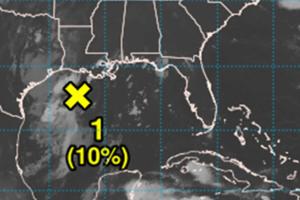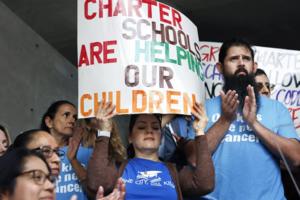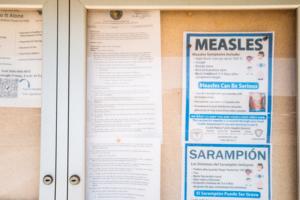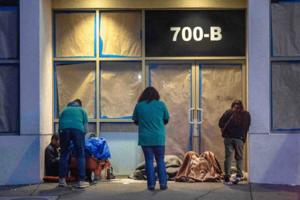Current News
/ArcaMax
After detainee release, US warns Americans: Don't travel to Venezuela
The U.S. State Department has urged Americans not to travel to Venezuela following the release of detained citizens, warning that travelers face the risk of being wrongfully held for extended periods.
The warning was posted Tuesday on the State Department’s social media accounts, four days after President Donald Trump’s administration ...Read more
How a US citizen and former Navy serviceman went missing in Haiti
First, a cop went missing. Then, a cache of rifles issued by the Haitian national police vanished. Then, the gregarious hotel manager charged with safeguarding the weapons was ambushed while driving on a Port-au-Prince street.
His bullet-riddled gray car was later found at a nearby police station.
The mysterious disappearances are now the ...Read more

Florida says it's evaluating storm evacuation options at Alligator Alcatraz
MIAMI — With the peak of hurricane season only days away, Gov. Ron DeSantis defended his administration’s lack of a public hurricane evacuation plan for Alligator Alcatraz, the immigrant detention facility in the heart of the Everglades.
In a press conference at the site on Friday, the governor pushed back at criticism that the state was ...Read more

Miami-Dade mayor demands 'immediate access' and oversight over Alligator Alcatraz
MIAMI — The Mayor of Miami-Dade County is once again demanding access to Alligator Alcatraz, the immigrant detention center in the Everglades that was rapidly built on property seized from the county.
Mayor Daniella Levine Cava’s letter to the state, issued Friday, was a stern call for “immediate access and oversight authority” and ...Read more

Florida-based Blue Angels sued over free speech rights related to cat's death
The U.S. Navy Blue Angels, based in Pensacola, Florida, are being sued for violating constitutional free speech rights after their performances allegedly terrorized a woman’s pet to death.
On Monday, Lauren Ann Lombardi, of Seattle, filed a lawsuit against the governmental agency, according to WEAR-TV, the ABC affiliate in Pensacola.
...Read more
Seattle faith leaders gather for vigil in solidarity with immigrants
SEATTLE — A group of nearly 100 people came together for a multifaith vigil outside the U.S. Courthouse in Seattle on Thursday to declare solidarity with immigrant communities. Some wore kippas, clericals, necklaces bearing crosses or the Star of David.
“Together in Welcome,” was co-hosted by several organizations, including the Jewish ...Read more

U of New Mexico shooting: 1 killed, 1 wounded; suspect at large
An early-morning shooting at the University of New Mexico in Albuquerque left one person dead and another wounded, prompting a shelter-in-place order, officials said Friday.
The suspect remains at large and “may still be on campus” as of 8 a.m. local time, the school said in a statement shared on social media.
The UNM Police Department ...Read more
Mayor Todd Gloria order seeks to strengthen San Diego's polices on immigration enforcement
SAN DIEGO — Reacting to the Trump administration’s aggressive immigration enforcement playing out across San Diego, Mayor Todd Gloria this week issued an executive order calling for measures to support the community that include know-your-rights outreach, interagency planning for response to “disruptive” enforcement actions and requests ...Read more

Conservative group, state senator sue Colorado Gov. Jared Polis over state's move to keep tax on overtime
DENVER — A conservative advocacy group and a state senator sued Gov. Jared Polis and the head of Colorado’s tax agency Thursday, alleging that recent legislation requiring the continued taxing of overtime pay — in the face of federal changes — violates the state constitution.
The lawsuit, filed in Denver District Court, argues that ...Read more

Zelenskyy plans to ask Europe for help to pay Ukraine's soldiers
Ukrainian President Volodymyr Zelenskyy plans to ask European allies to help finance improved salaries for troops resisting Russia’s invasion, in a bid to ease growing shortages of recruits.
“Previously, Europeans refused to provide funding for the salaries of our military personnel, only for weapons,” Zelenskyy told reporters in Kyiv on ...Read more

Thailand warns of war with Cambodia as US, China urge calm
Thailand warned its conflict with neighboring Cambodia could “potentially develop into a war” as troops used rockets and artillery to shell targets along their contested border for a second day.
Acting Prime Minister Phumtham Wechayachai told reporters Friday that the severity of the clashes was escalating, endangering civilians, and ...Read more

UK Cabinet pushes Starmer over backing of Palestinian state
LONDON — U.K. Prime Minister Keir Starmer is facing pressure from senior members of his government and French President Emmanuel Macron to imminently recognize Palestine as a sovereign state due to the worsening humanitarian crisis in Gaza.
Some Cabinet ministers have grown frustrated with Starmer’s resistance to fulfilling his promise to ...Read more

US criticizes Macron for opting to recognize Palestinian state
President Emmanuel Macron said France would recognize a Palestinian state in September, prompting a backlash from the U.S. and Israel.
“In keeping with its historic commitment to a just and lasting peace in the Middle East, I have decided that France will recognize the State of Palestine,” Macron said in a social media post late Thursday.
...Read more

Hurricane center says Gulf system near Louisiana has small chance to develop
ORLANDO, Fla. — The National Hurricane Center continued Friday to track a low pressure system in the Gulf that could develop into the season’s next tropical depression or storm.
As of the NHC’s 8 a.m. tropical advisory, the broad area of low pressure was about 100 miles south of the coast of southwestern Louisiana disorganized showers and...Read more

Big win for charter schools as court strikes down LA Unified policy
LOS ANGELES — In a victory for Los Angeles charter schools, a judge has struck down a sweeping Los Angeles Unified policy that would have prevented charters — the school of choice for 1 in 5 L.A. public-school students — from using classroom space at nearly 350 campuses.
The policy, set to go into effect when the new school year opens in...Read more

Measles cases just reached 30-year high in the US. How bad is California surge?
SACRAMENTO, Calif. — Measles cases in California and the United States are climbing to levels the country hasn’t seen in years.
So far in 2025, the disease has infected 1,319 people nationwide, leading to 29 outbreaks and 165 hospitalizations, according to the Centers for Disease Control and Prevention.
Three people have died as a result ...Read more

Petition seeks to change new Kentucky law limiting teacher-student communication
LEXINGTON, Ky. — Confusion over a new state law banning personal electronic communication between public school employees and students has created multiple repercussions for high school sports teams this summer.
Senate Bill 181, aimed at preventing inappropriate sexual communication involving public school staff and students, earned unanimous...Read more

Trump's homelessness crackdown direction draws pushback and some nods in California's Orange County
Orange County officials and front-line workers are responding with a mix of concern and selective support to President Donald Trump's new executive order targeting homelessness, a sweeping directive that leans heavily on law enforcement, civil commitments and mandatory treatment.
Signed Thursday, July 24, the order calls for a reset on how ...Read more

Las Vegas police officer who fatally shot Brandon Durham will not be indicted, lawyer says
A Las Vegas police officer who fatally shot a man in his home will not be indicted, according to a lawyer representing the man’s family.
Metropolitan Police Department officer Alexander Bookman fatally shot Brandon Durham, 43, on Nov. 12 after Durham called police to report a burglary.
“This failure to act is a betrayal of the public trust...Read more

US, South Korea reaffirm pledge to reach trade deal before deadline
South Korea and the U.S. reaffirmed their commitment to pursue a mutually beneficial trade agreement ahead of the Aug. 1 deadline when duties are set to rise, the Asian nation’s industry ministry said.
U.S. Commerce Secretary Howard Lutnick and South Korea’s Industry Minister Kim Jung-kwan discussed sectoral and reciprocal tariffs on ...Read more
Popular Stories
- Trump's homelessness crackdown direction draws pushback and some nods in California's Orange County
- Las Vegas police officer who fatally shot Brandon Durham will not be indicted, lawyer says
- Petition seeks to change new Kentucky law limiting teacher-student communication
- Trump EPA commits to '100% cleanup' of chronically polluted Tijuana River in memo of understanding with Mexico
- Measles cases just reached 30-year high in the US. How bad is California surge?





